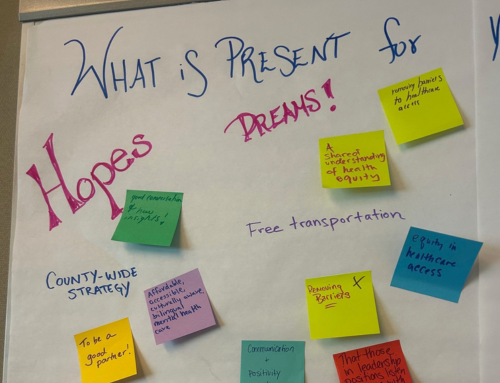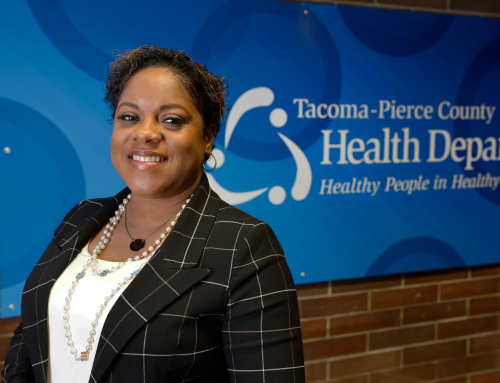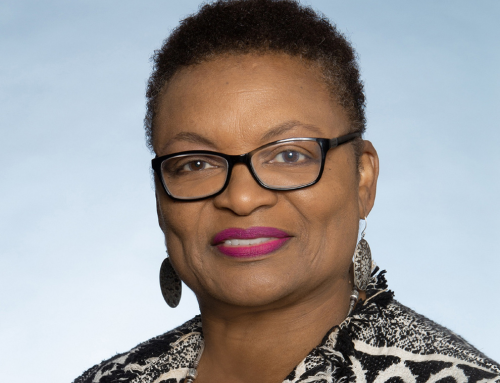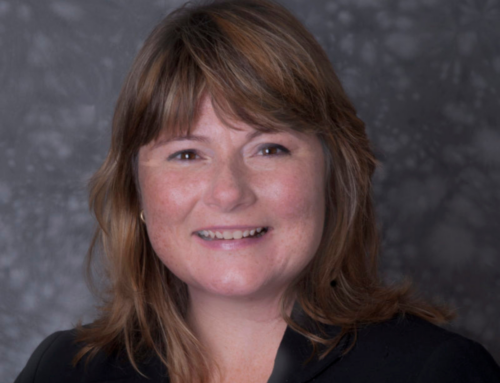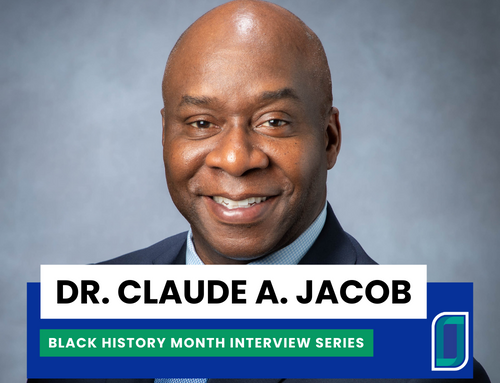Stephen L. Williams, director of the Houston Health Department (HHD), shared insights into his journey, emphasizing the importance of mentorship, workforce development, and community engagement in public health. Williams also highlighted the impact of accreditation on HHD and the evolving landscape of public health.
Williams began his professional journey in juvenile justice and behavioral health, driven by a desire to help people. A turning point in Williams’ career came when he became a National Urban Fellow which took him to Maricopa County, Arizona. Under the mentorship of the assistant county manager Adolfo Echeveste, he discovered his path to public health. His experiences as a therapist and running various community programs shaped his understanding of the importance of community engagement and the need to address the root causes of community challenges. That experience led Williams to Austin Public Health and eventually to the Houston Health Department, where he has been for more than 19 years.
Mentorship and the Public Health Workforce
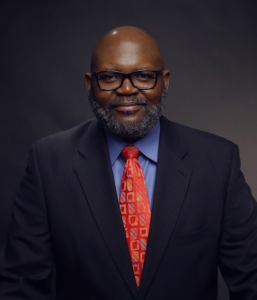 Mentorship has been critical throughout Williams’ career and played a pivotal role in shaping his perspectives. Williams actively promotes mentorship within his department, encouraging staff to participate in programs like the Executive Leadership Institute from the National Forum for Black Public Health Administrators and hosting several Urban Fellows at the department. He emphasized that mentorship is essential for developing a confident and agile workforce capable of meeting the community’s diverse needs, which is necessary for public health transformation.
Mentorship has been critical throughout Williams’ career and played a pivotal role in shaping his perspectives. Williams actively promotes mentorship within his department, encouraging staff to participate in programs like the Executive Leadership Institute from the National Forum for Black Public Health Administrators and hosting several Urban Fellows at the department. He emphasized that mentorship is essential for developing a confident and agile workforce capable of meeting the community’s diverse needs, which is necessary for public health transformation.
“[Mentorship] gives you a different perspective on the work itself, forming those relationships and having that coaching as you are journeying through your career is very helpful,” Williams said.
A department strategy to boost and enhance the public health workforce is allowing staff to work on what the department calls “missions” outside their routine and creating mentorship opportunities. Missions help staff become more familiar with each other and provide practical public health experience. Diverse experiences and hands-on training are invaluable in building a resilient public health workforce.
“There’s no substitution for the experience; we can have all the knowledge and know the facts, but it’s the experience that pulls it all together,” Williams said.
Accreditation and Continuous Improvement
Williams was admittedly skeptical of accreditation at first but later recognized its role in driving continuous improvement for HHD. Accreditation provided a framework for process improvements, workforce development, and a structured approach to address challenges. Williams believes accreditation is foundational, emphasizing the importance of visionary leadership, a confident workforce, and a commitment to community engagement.
“Accreditation has been foundational and also created a structure to look at workforce development and process improvement,” Williams said. “We are continuing to look at things through that accreditation lens, which has been very helpful.”
Public Health Transformation
For Williams, public health transformation means returning to basics which includes developing an agile workforce that can respond effectively to community needs. Over his 19 years in Houston, Williams has witnessed and participated in responding to various crises, including hurricanes, floods, the COVID-19 pandemic, and more. He underscored the importance of having a workforce that anticipates being called upon to respond to such situations, showcasing public health’s essential role in community well-being.
“There is a need for us to get back to basics and not over intellectualize public health itself,” Williams noted. “While I recognize and value the importance of data and data driven decisions, these important elements are not the end goal. The end goal is to use data and information to impact the health and well-being of people. It is about the people in the communities.”
Being embedded in communities fosters a transformative approach that is responsive, grounded, and committed to addressing day-to-day issues, particularly for chronic diseases. Williams states understanding the needs and practices of community members is crucial for making meaningful changes and driving public health transformation.
“To be transformational, we need visionary leadership that keeps their feet on the ground,” Williams said.
HHD also showcases its commitment to diversity and equity in public health by engaging community organizations as full partners and incorporating their proposals and capacities into the department’s initiatives. Governmental public health often relies on community organizations to do the work but seldom provides the resources or support to build the necessary infrastructure for some of the smaller community organizations to contract with government agencies. Through a foundation, the department provides mini grants to those community organizations to build community capacity.
“These organizations become part of our ongoing network, and we are not depending on them to do [the work] solely out of the goodness of their hearts,” Williams explained.
HHD has countless examples of embedding community organizations and voices in its initiatives and public health response, from addressing community fire hazards to responding to the COVID-19 pandemic. Throughout all the department’s efforts, ensuring department staff represent and are part of the community they serve is at its center.
Passion, a commitment to service, and a genuine desire to make a difference are qualities that, according to Williams, contribute to a successful and fulfilling career in public health.
“There is no higher calling than to serve others… it’s intrinsically rewarding,” Williams concluded.
